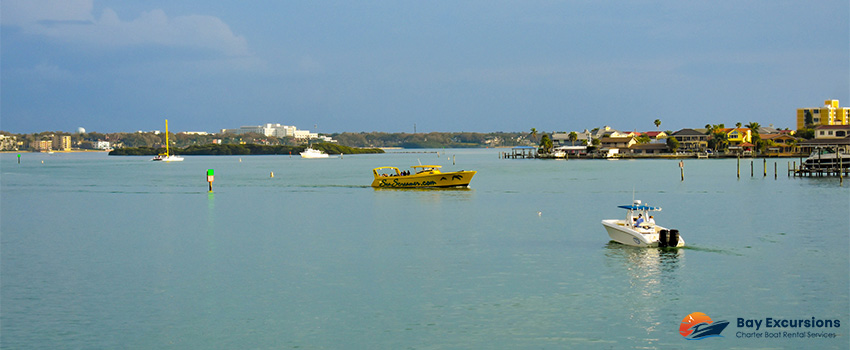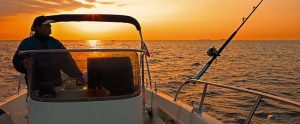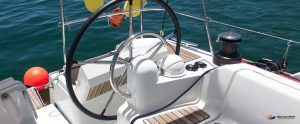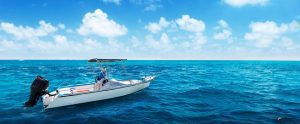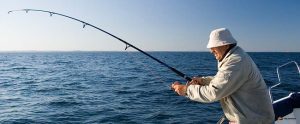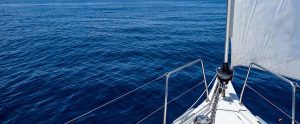There’s no better way to destress and rejuvenate than with a generous dose of vitamin sea.
Cruising through the great blue ocean on a bowrider boat is a great, versatile, and family-friendly way to spend a relaxing getaway. Whether it’s for leisure or water sports, you can do anything with a bowrider boat.
While boating is generally safe, accidents can still happen. It’s always best to be prepared by properly equipping yourself and reading up on pertinent boating safety information beforehand.
Here are some boating safety tips you can follow:
1. Check the Weather
No matter what the season it is, pay close attention to the weather whenever you set sail. Monitor your local and destination’s weather, sea reports, and boating forecasts several days before your scheduled ride.
With the rise of readily available weather apps, you can quickly check for sudden changes in the atmosphere. As soon as you notice any changes that may put your safety at risk, return to shore as soon as possible. Bring a radio for accessible communication with the appropriate parties.
Never face a storm while on a boat. Notify and communicate regularly with your boat rental if there’s a need to reschedule.
2. Always Wear Your Personal Flotation Devices
A personal flotation device, or colloquially known as a life jacket, is the most essential safety measure every sailor needs. It must be fit, comfortable, and US Coast Guard-approved, especially for children.
Life jackets come in different sizes. Some are specifically designed for infants and children based on their weight. Be aware of the different variations, and equip yourself and your passengers, if applicable, appropriately. According to the US Coast Guard, life jackets save lives in 80% of boat-related accidents.
There is no legitimate excuse for not wearing one.
3. Bring a Safety Kit
In case emergencies arise, a safety kit will make quick work of any life-threatening events. It should include the following at the bare minimum:
- A first aid kit, including:
- allergy medications (e.g., antihistamines) and drugs for asthma attacks, fevers, and motion-sickness;
bandages; - antiseptic creams;
- sunscreen; and
- lip protection.
- allergy medications (e.g., antihistamines) and drugs for asthma attacks, fevers, and motion-sickness;
- A flashlight
- A horn or whistle
- A waterproof bag
- A GPS tracker
4. Avoid Liquor
Alcohol poses a more significant threat in water than on land. In several states, including Florida, you are prohibited from operating a boat under the influence.
The waves, vibrations, and wind all worsen your impaired senses when intoxicated. Your balance, vision, reaction speed, and coordination are drastically affected, increasing the risk of falling into the water.
5. Adhere to the Boat Rental’s Guidelines
A boat carrying too many people or belongings is a safety risk. Anything beyond the allowable capacity will overload the boat, making it difficult to control.
Always check the boat’s capacity plate indicating the maximum number of people and weight it can carry.
Evenly distributing the load on-board is recommended. Keep the total weight low, and avoid sudden changes in distributed weight.
6. Keep Away from the Engine
Do a headcount before the engine starts. Remind everyone that they should refrain from leaving the boat while the engine is running or idling and that they should stay away from the engine and propellers, active or not.
7. Stay Alert
Keep a safe distance from other boats and swimmers. Operate at a safe speed. Watch the children carefully, and account for the number of passengers on board.
8. Know What To Do if Someone Goes Overboard
Do not panic. In a situation where the victim failed to wear their personal flotation device, throw a life jacket, life ring, or other flotation device into the water.
- Alert other passengers and any surrounding boats.
- Keep them in your line of view. If the boat is in motion, stop or slow it down immediately.
- If they’re drowning, do not try to save them yourself, as they may drag you under in a panic.
- Once you’ve pulled them in, take off their wet clothes to prevent hypothermia. Give them a blanket to preserve their body heat.
- If they are unconscious, perform CPR. If they need medical attention, call the US Coast Guard for help.
9. Take a Boating Safety Course
Take a boating course to be familiar with boating rules and to be trained in safety precautions.
Knowing how to be safe on a boat will provide the relaxation you’ve been looking for. Safety always comes before leisure.
“Are bowriders safe?” you may be asking. Our 24-foot Hurricane 237 bowriders at Bay Excursions are well-maintained, equipped with GPS navigation, and are the best at providing maximum comfort. Book our private boat charter in Clearwater Beach, FL, today! We are ready and willing to accommodate you and up to five other companions.
